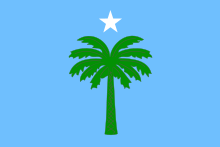Tripolitanian Republic
| Tripolitanian Republic | ||||||||||
| الجمهورية الطرابلسية | ||||||||||
| ||||||||||
|
| ||||||||||
 Tripolitanian Republic in Green | ||||||||||
| Capital | ‘Aziziya | |||||||||
| Languages | Berber, Arabic | |||||||||
| Religion | Islam | |||||||||
| Government | Republic | |||||||||
| Historical era | Interwar period | |||||||||
| • | Established | November 16, 1918 | ||||||||
| • | Disestablished | 1922 | ||||||||
| ||||||||||
After World War I, an Arab Republic, Al-Jumhuriya al-Trabulsiya الجمهورية الطرابلسية , or "Tripolitanian Republic", declared the independence of Tripolitania from Italian Libya. The proclamation of the Tripolitanian Republic in autumn 1918 was followed by a formal declaration of independence at the 1919 Paris Peace Conference. This was the first formally declared republican form of government in the Arab world, but it gained little support from international powers, and disintegrated by 1923. Italy managed to establish full control over Libya by 1930. Originally administered as part of a single colony, Italian Tripolitania was a separate colony from 26 June 1927 to 3 December 1934, when it was merged into Libya.
Further reading
- Lisa Anderson, "The Tripoli Republic", in George Joffe and Keith MacLachlan (eds.), Social and Economic Development of Libya (Wisbeck: Menas Press, 1982).
This article is issued from Wikipedia - version of the 5/7/2016. The text is available under the Creative Commons Attribution/Share Alike but additional terms may apply for the media files.
